You must consider many variables to ensure your plants are healthy and thrive when gardening. Different vegetables have different fertilizer requirements, so it’s important to know what each needs to keep your garden looking its best. Fertilizers come in many different forms, and the kind you use will depend on your specific needs. There are also different types of fertilizers, including synthetic and organic.
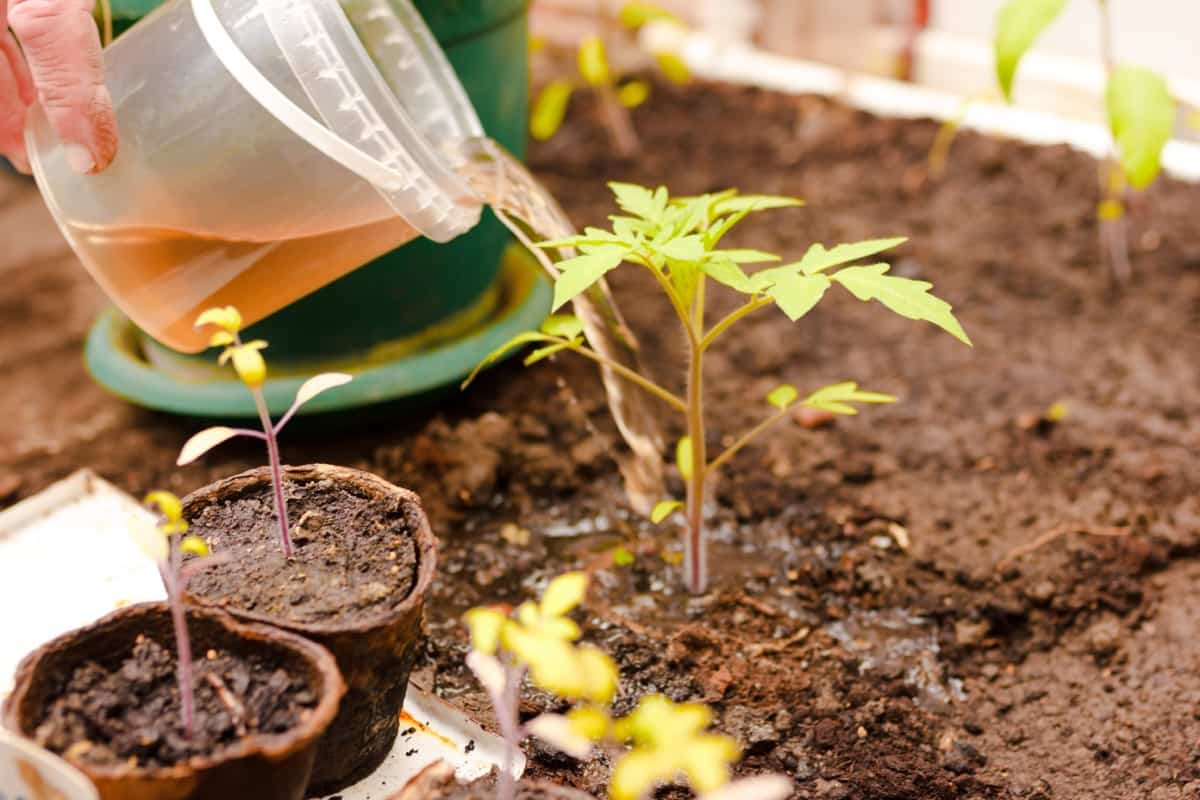
Synthetic fertilizers are made from chemicals and can be quick-acting but can harm the environment if not used properly. Organic fertilizers are made from natural materials like manure and compost. They are safer for the environment but take longer to break down in the soil and may not be as effective as synthetic fertilizers.
The best way to determine which fertilizer is right for your garden is to have your soil tested by a professional. This will tell you what nutrients your soil lacks so you can choose a fertilizer to address those deficiencies. Once you know what nutrients your soil is lacking, you can take steps to amend it. This may involve adding organic matter, such as compost, manure, or chemical fertilizers.
When and How to Fertilize Your Vegetable Garden
Types of Fertilizers
Fertilizer is an important part of gardening, and many different types exist. The fertilizer you use will depend on the type of plants you are growing, the time of year, and your soil conditions. Inorganic fertilizers are made from minerals and chemicals and can be either synthetic. They are typically available in granular or liquid form. Synthetic inorganic fertilizers are typically more concentrated than natural ones, so you must be careful not to over-fertilize your plants.
Organic fertilizers include compost, manure, and bone meal from plant or animal matter. They are often slower-acting than inorganic fertilizers, but they can be a great way to add nutrients to your soil over time. Different plants have different fertilizer needs, so it’s important to know what fertilizer to use. When it comes to applying fertilizer, less is usually more. Apply fertilizer according to the instructions on the package.
Essential Nutrients Required for Healthy Plants
Plants need three main things to grow: sunlight, water, and nutrients. Nutrients are the minerals that help plants grow and develop. Macronutrients are the nutrients that plants need in large quantities to grow and develop properly. The three main macronutrients are nitrogen, phosphorus, and potassium. Without adequate levels of these nutrients, plants cannot grow properly. Micronutrients are the nutrients that plants need in small quantities to grow and develop properly. Iron, manganese, copper, zinc, boron, molybdenum, chlorine, and nickel are the main micronutrients.
Nitrogen
Nitrogen is the most important nutrient for plants. It helps them to grow and develop properly. It is a key ingredient in fertilizers and other plant growth products. Without enough nitrogen, plants will not be able to grow properly.
In case you missed it: How to Make Grass Clippings Compost Fertilizer: Homemade Recipe, DIY for Container, Indoor, and Backyard Garden Plants

Phosphorus
Plants need phosphorus to grow and develop properly. This essential nutrient helps with root growth, flower development, and seed production. Phosphorus is found in many fertilizers and can be sourced from bone meal, rock phosphate, and other organic sources.
Potassium
Potassium is an essential element for plant growth. It involves many biochemical processes, such as transporting nutrients and water within the plant. Potassium is also necessary for synthesizing chlorophyll and forming strong cell walls. A potassium deficiency can cause stunted growth, yellowing leaves, and poor fruit quality.
Other Trace Minerals
Besides the big three nutrients, plants need other trace minerals for proper growth. These include Boron, Chlorine, Copper, Iron, Manganese, Molybdenum, and Zinc. While these elements are needed in much smaller quantities than nitrogen, phosphorus, and potassium, they are still essential for plant health.
Boron is involved in cell wall formation, seed germination, and the uptake of calcium by plants. Chlorine is important for photosynthesis and helps with water uptake by plants. Copper is necessary for several enzyme reactions in plants. Iron is needed for chlorophyll production and plays a role in respiratory electron transport. Manganese is involved in several plant metabolic processes, including photosynthesis, nitrogen fixation, and the metabolism of carbohydrates and fats.
Tips for Fertilizing Your Garden
Use the right fertilizer for your garden. There are many different types of fertilizer, so get the right one for your plants. Fertilize at the right time of year. Timing is important when it comes to fertilizing your garden. During the growing season, make sure to fertilize and not during the winter months. Follow the directions on the fertilizer label. You should read and follow the directions on any fertilizer you use.
Be careful with chemical fertilizers. Chemical fertilizers can harm both you and your plants if used incorrectly. Always follow the instructions on the label and wear gloves when handling them. Try organic methods of fertilization first. Many organic options are available if you want a more natural way to fertilize your garden. These methods are often gentler on both you and your plants.
In case you missed it: Ways to Make and Use Banana Peel Fertilizer in Garden Plants: When and How to Apply
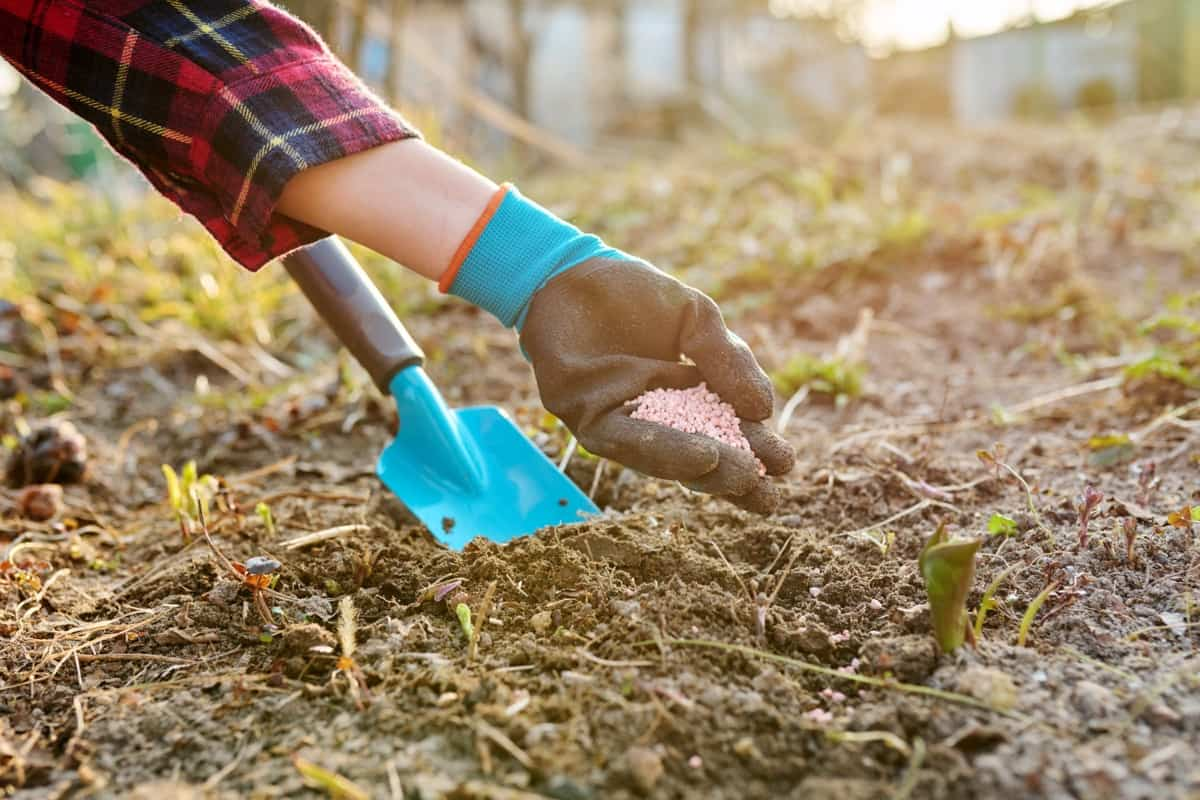
Common Garden Vegetables and Their Nutrient Needs
Alliums
Alliums are a versatile group of vegetables that includes Onions, Garlic, Leeks, and Shallots. They are relatively easy to grow and are tolerant of a wide range of growing conditions. Allium plants are incredibly easy to grow and maintain if you provide the necessary nutrients.
They need soil high in nitrogen and phosphorus for healthy growth and adequate amounts of potassium and other minerals like magnesium and calcium. It’s important to remember that alliums will benefit from organic composts or fertilizers to get the essential vitamin and mineral boost they need. With a little knowledge of their nutrient needs, you can easily create an ideal environment for your beloved allium plants.
Brassicas
The Brassicas are a large family of plants with many common garden vegetables. The most well-known members of this family are Broccoli, Cabbage, and Cauliflower, but the family also includes Brussels Sprouts, Collards, Kale, and Kohlrabi. All of these vegetables share some common characteristics. They are all cool-season crops that do best in temperatures between 16 to 23°C.
They all have relatively shallow root systems and prefer evenly moist soil with good drainage. And they all need plenty of nitrogen to produce healthy growth. Regarding fertilizer, the best bet for the Brassicas is a high-nitrogen fertilizer like ammonium sulfate or urea. Apply 450 grams per 100 square feet of garden space when planting your crop. Then side-dress with additional fertilizer every 4 to 6 weeks throughout the growing season.
Corn
Corn is a common garden vegetable that is easy to grow and provides a bountiful harvest. The key to growing Corn’s success is to provide the right amount of fertilizer. Too much fertilizer can produce excessively tall plants with few ears of Corn, while too little fertilizer will result in stunted plants with fewer ears of Corn. The ideal fertilizer for Corn contains a balance of nitrogen, phosphorus, and potassium.
Cucurbits and Melons
Cucurbits and Melons are common garden vegetables that have different fertilizer needs. Cucurbits include Cucumbers, Squash, and Melons. They are fast-growing plants that need lots of water and nutrients. Cucumbers, Squash, and Melons are heavy feeders and need plenty of nitrogen, phosphorus, and potassium throughout the growing season. A general-purpose fertilizer with an N-P-K ratio of 10-10-10 or 12-12-12 can be used at planting time and again when the plants bloom. Follow the manufacturer’s directions on how much to apply and how often to fertilize.
In case you missed it: Over Fertilization Symptoms of Indoor Plants and How to Fix It
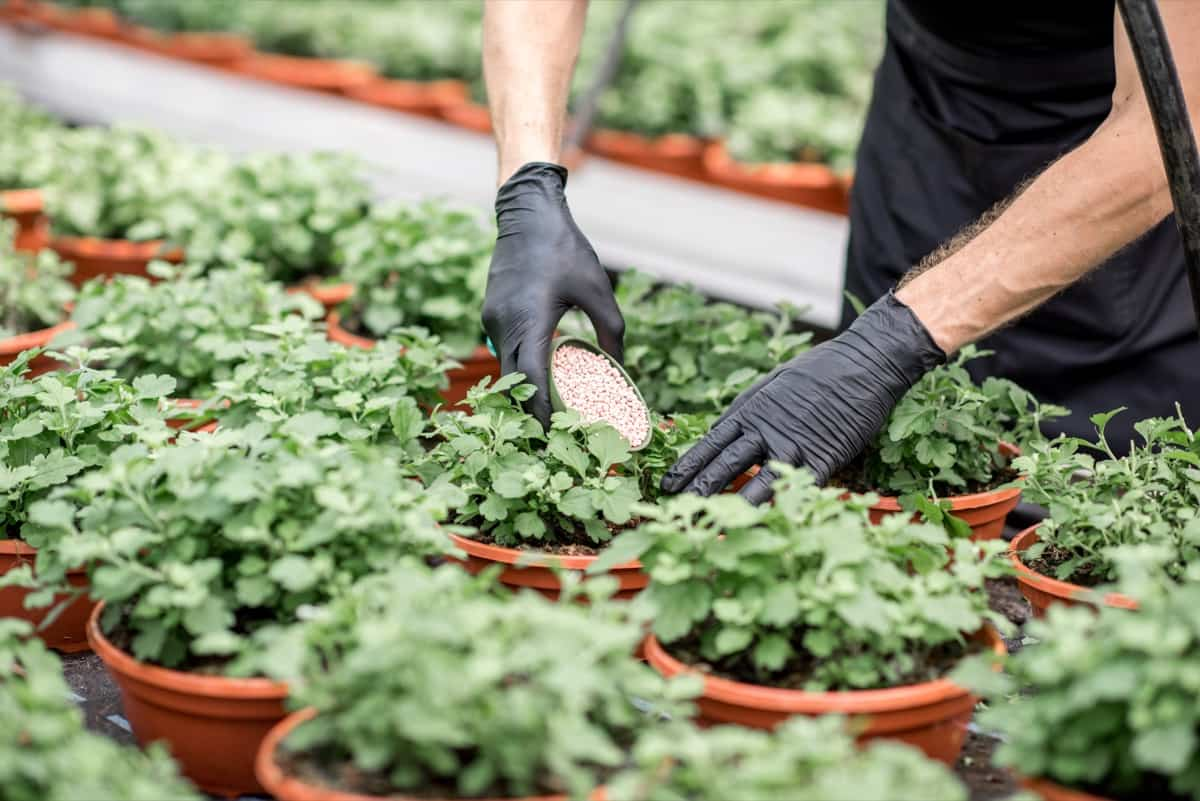
Leafy Crops
Leafy crops are a great addition to any garden and have various fertilizer needs. Nitrogen is the most important nutrient for leafy crops, so using a fertilizer with a high nitrogen content is important. Leafy crops also need plenty of phosphorus and potassium, so use a fertilizer with these nutrients.
Legumes
Legumes include Beans, Peas, and Lentils. They are unique because they can fix nitrogen from the air into the soil, making them an excellent choice for growing in nitrogen-poor soils. However, they still need other nutrients for optimal growth, including phosphorus and potassium.
When it comes to fertilizing legumes, less is more. Too much nitrogen can inhibit nodulation (the process by which legumes form nitrogen-fixing nodules on their roots). A general rule of thumb is to apply 113 to 226 grams of actual nitrogen per 100 square feet of garden space per year. For phosphorus and potassium, use a balanced fertilizer or follow the recommendations of a soil test.
Roots and Tubers
Roots and tubers are an essential part of many gardens. They are a great source of carbohydrates and are very easy to grow. However, specific fertilizer needs must be met to produce a bountiful crop. The best time to fertilize roots and tubers is just before planting. This will give them the nutrients to start and produce a strong root system.
In case you missed it: Homemade Fertilizers for Root Vegetables: Potatoes, Carrots, Beetroot, Onions, Radishes, Turnip, Ginger, and Garlic
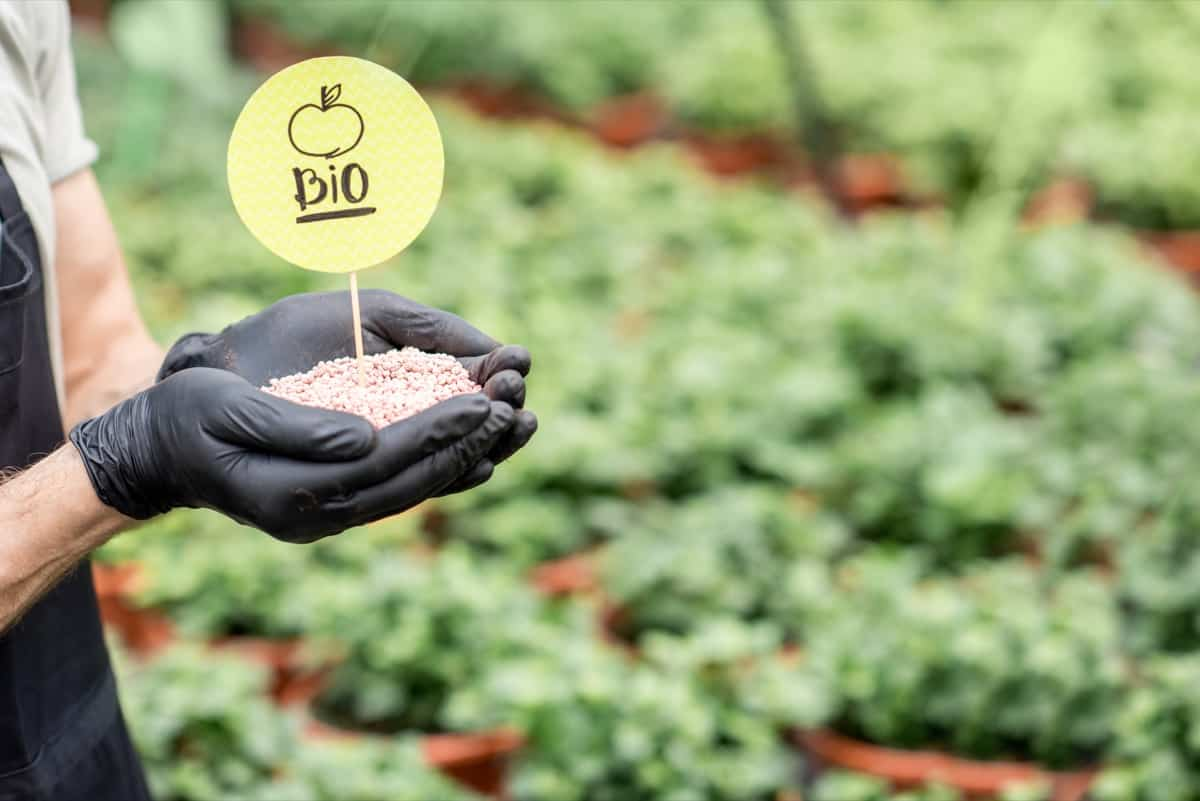
For established plants, fertilizer should be applied every few weeks during the growing season. A few different types of fertilizer can be used on roots and tubers. One is an all-purpose fertilizer that can be used on all types of plants. Another type is a root booster specifically designed to encourage strong root growth. Whichever type you choose, be sure to use it as directed to avoid damaging your plants.
Tips for Applying Granular Fertilizers
Apply fertilizer before planting. This will give the plants a boost as they start to grow. Use a light hand when applying fertilizer. Too much can burn the roots and damage the plants.
Water the fertilizer well after applying it. This will help it break down and be available to the plants. Reapply fertilizer every four weeks or so during the growing season. This will keep the plants healthy and productive. Stop fertilizing a few weeks before harvest time. This will prevent the vegetables from absorbing too much nitrogen, which can make them bitter-tasting.
Tips for Applying Liquid Fertilizers
A few things to remember when applying liquid fertilizers to your vegetable garden. First, you’ll want to ensure the fertilizer is diluted properly before applying it to the plants. Second, you’ll want to apply the fertilizer when the plants are actively growing and not drought-stressed. And finally, you’ll want to be sure to apply the fertilizer evenly so that all plants get an adequate amount.
When diluting the fertilizer, follow the directions on the package. Once you’ve mixed it, pour it around the base of each plant. Be careful not to get any on the leaves, as this can burn them. It’s best to apply liquid fertilizers in the early morning or evening hours so that they have time to soak into the soil before the hot sun evaporates them.
How often to apply liquid fertilizers depends on what type of fertilizer you’re using and how well your plants are doing. If you’re using a slow-release fertilizer, you can probably get away with applying it every 4-6 weeks. But if you’re using a quick-release fertilizer or your plants show signs of nutrient deficiencies, you may need to apply it more often.
In case you missed it: How to Get Rid of Mealybugs on Plants: A Full Guide to Home Remedies, Organic and Chemical Control
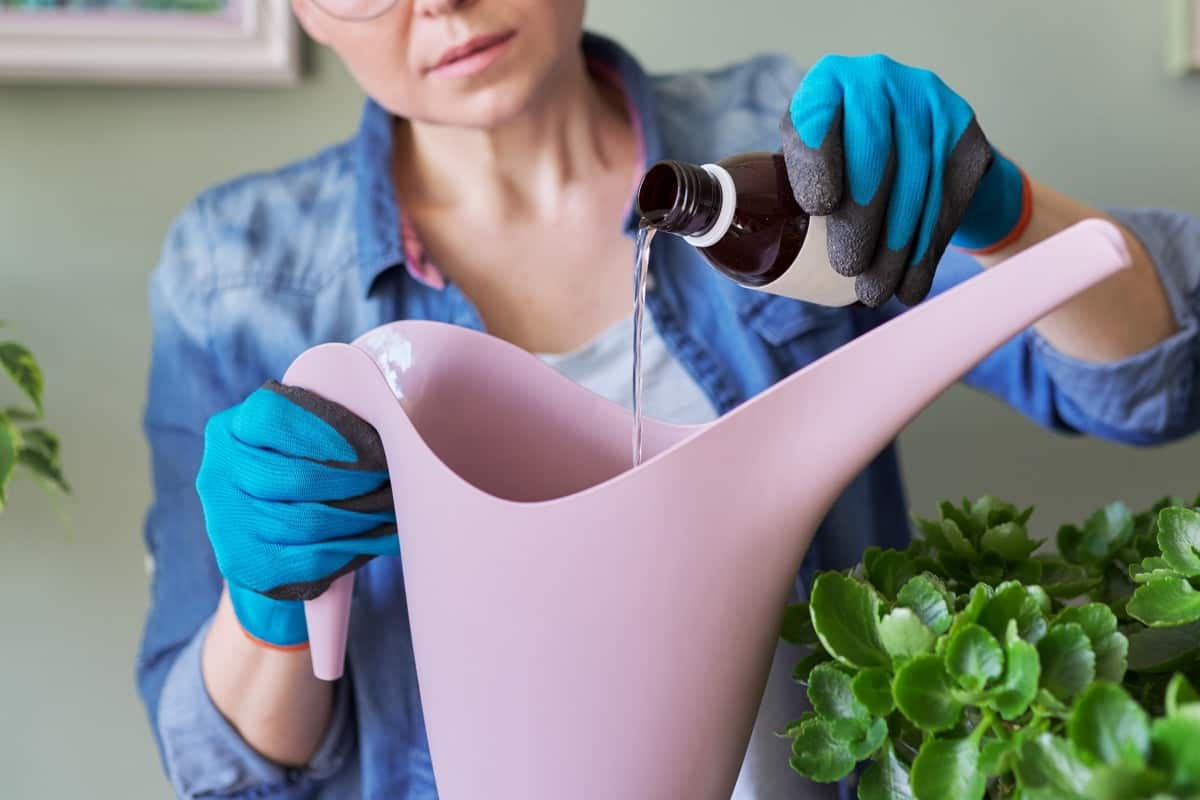
Conclusion
Fertilizing your vegetable garden is an important part of gardening and can help your plants stay healthy and productive. Be sure to research what fertilizers are best for your plants and how much and when to apply them to keep your vegetable garden looking its best. Fertilizing your vegetable garden is important to ensuring a healthy and productive crop.
By selecting the right fertilizer and applying it at the right time and in the right amount, you can ensure that your plants get all the nutrients they need to thrive. You can enjoy abundant harvests from your vegetable garden for years with proper fertilization techniques and care.
- Gardening Techniques in Planting Vegetables
- Where to Place Indoor Plants in Your Home
- How to Grow Tomatoes Organically at Home: A Comprehensive Guide
- Organic Gardening on a Budget: Low-Cost Methods and Materials
- Gongura Seed Germination and Planting Methods
- Cabbage Seed Germination and Selection
- Broccoli Seed Germination and Selection
- Asparagus Seed Germination and Variety Selection
- Seasonal Flower Gardening: Best Practices for Spring, Summer, Fall, and Winter
- How to Grow Hibiscus from Flower
- Plantation Ideas for Home Decoration: A Beginners Guide
- Flower Garden Designs and Layouts for Beginners
- Planting and Spacing Techniques in Papaya: A Beginner’s Guide
- Growing Gold: Essential Techniques for Planting Pineapples
- How to Make Kalanchoe Plant Bushy: Home Remedies and Solutions
- 11 Reasons Why Your Gardenia is Not Blooming: Home Remedies and Solutions
- Eco Elegance: The Guide to Designing a Drought-Tolerant Landscape
- Gardening on a Slope: Strategies for Hillside Landscaping
- Nourish and Flourish: Top Organic Mulches for Thriving House Plants
- Everything You Want to Know about Indian Mogra Flower: Discover Uses and Growing
- Green Thumb Success: Expert Tips for Cultivating Greenhouse Pumpkins All Year Round
- Maximize Growth & Flavor: The Ultimate Guide to Companion Planting in Herb Gardens
- How to Control Rhododendron Problems Naturally: Home Remedies and Organic Ways to Fix Them
- Natural Magic: The Remarkable Benefits of Cinnamon for Plants
- Best Steps to Revive Dying Tulip with Natural and Organic Treatment
- 10 Reasons Why Your Angel Trumpet is Not Blooming: Remedies and Treatment
- How to Fix Periwinkle Leaf and Flower-Related Problems: Natural Remedies and Solutions
- How to Fix Zinnias Leaf and Flower Problems: Discover Natural and Home Remedies
- Organic Steps to Induce Lemon Tree Flowers: A Comprehensive Guide
- Bloom Booster: Crafting the Perfect Homemade Bougainvillea Fertilizer
- Optimizing Growth: A Guide to Applying NPK Fertilizer for Potted Plants
- 10 Best Homemade Fertilizers for Rubber Plant: DIY Recipes and Application Method
- How to Boost Female Pumpkin Flowers: Effective Steps for More Flowers and High Yields
- Transform Your Indoor Garden: Top Benefits of Pink Salt for Houseplants
- 10 Best Homemade Fertilizers for Peacock Plants (Calathea): Easy DIY Guide
- Unlock Blooms: 9 Reasons Why Your Potted Chrysanthemum is Not Blooming